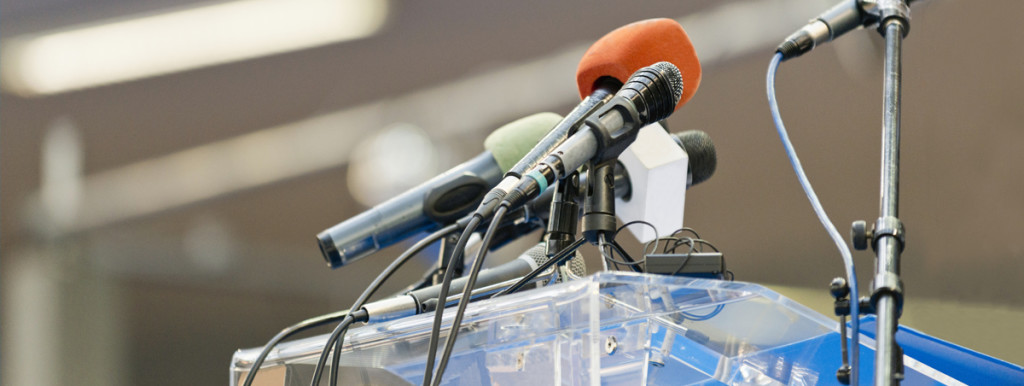In this fifth post in our 2024 predictions series, our sector experts among our Worldcom Public Relations Group’s Global Partners, from Europe, USA, Australia, and Latin America, highlight how the ever changing and increasing demands of audiences requires a core focus on being true to your story and being proactive about delivering it.
We’ve captured their thoughts in a seven-post series that covers everything from AI to sustainability. We’ve also included posts on two very important regions, Latin America and Malaysia and Indonesia.
We hope you find the advice helpful as you navigate your way through the challenges and opportunities that 2024 will bring.
Part 5 – Increasingly demanding expectations drive a need for clearer and more consistent communication
On the offense: Stakeholder management in the German public sphere will have to become more proactive
By Eduard Weber-Bemnet, Co-Founder and Co-Managing Director, BCC Business Communications Consulting GmbH, Frankfurt, Germany
Corporate as well as public institutions furthering infrastructure development in Germany are confronted with a changing public. Administrative proceedings are increasingly challenged and trust in democratic representatives is declining. While large-scale development projects in the transportation, energy and utilities sectors used to be discussed, negotiated, and decided by public representatives and interest groups in a set moderated process, today open dissent and public outrage need to be taken into account.
A new, rougher culture of debate and protest emerged amidst socio-political disputes about the cost of climate change and climate action, economic downturn, inflation, and a toxic geopolitical environment. Therefore, anyone planning to intervene in the public sphere in Germany must intensify communication, proactively addressing the needs and concerns of all stakeholders.
Diversity matters: Corporate communicators in Germany need to take a stance
By Regina Bruschke, Partner, BCC Business Communications Consulting GmbH, Frankfurt, Germany
Amidst growing debate about woke culture in Germany, companies operating in the German market are well advised to revise their stance on matters of diversity. A clear set of corporate values becomes more important than ever as a socio-critical and politically active Gen Z is transforming both the job and consumer market. They are openly demanding a non-discriminatory workplace and focusing their spending on brands that reflect their social and political beliefs. They are rejecting companies that treat diversity as a mere marketing strategy. At the same time, diversity measures such as gender-neutral language or affirmative hiring criteria increasingly create backlash, triggering controversial public debate and outrage among older generations. Companies are thus caught in a potentially tricky situation that is best navigated with a strong positioning and a corporate culture that can withstand critique without wavering.
Humanizing Narratives
By Beatriz Imenes, Vice President, Planin Comunicação, São Paulo, Brazil
In a world where connections are increasingly digital, the essence of human interaction remains paramount. This year, we anticipate a transformative shift in public relations narratives, as they evolve to incorporate a more human-centric approach, rooted in the perspectives and experiences of customers. It’s about crafting messages that not only reach people but resonate with them, fostering engagement and encouraging participation within communities on a level far exceeding current standards. Authenticity will emerge as a critical differentiator, marking a pivotal moment for brands. In this era, the ability to connect on a human level will not just be preferred—it will be essential.
Good crisis communication starts with good communication
By Serge Beckers, Managing Partner, Wisse Kommunikatie, Arnhem, Netherlands
A crisis can happen to anyone, anyone can make mistakes. So, in crisis communication, how you handle those mistakes is at least as important for your reputation as your efforts to prevent them. And prior to preventing and handling them, it is crucial that your organization is seen in the right light by its stakeholders, including the media.
So, even though crisis communication plans are crucial for any organization, also make sure you have done your homework properly. For example, make sure that you systematically spread the right messages from and about your organization. That you keep your spokespeople and your communications and marketing department informed and trained. That you have your thought leadership program in place, and that you let the media know what your organization stands for.
Then you can start developing your crisis scenarios and Q&As, mapping and monitoring online coverage, creating a crisis plan and training the management and spokespeople. Then, when a crisis occurs, every person involved can be quickly lined up and knowledgeably handle the crisis situation.
Employees will be the next influencers
By Larissa Lago, Partner, Planin Comunicação, São Paulo, Brazil
Companies will direct new marketing efforts to employees, considering them as corporate ambassadors at all levels and through all channels. By working on the image of their professionals on digital media, companies will adopt a new strategy to overcome the high costs of online ads. There is no doubt that leveraging employees and encouraging them to promote the organization’s culture, products, and services is more profitable than promoting posts to diverse audiences that are not always reached by campaigns because, most of the time, the available investments are low. In addition, the strength of testimonials helps in creating more authentic and convincing narratives. The warning is about competitors, who will be eager to find the best talents that have been widely propagated through social networks. To solve this issue and get the format right, the curation of communication experts will be essential.
Breaking the Corporate Ice: The Power of Authenticity in Leadership Communication
By Stanislas Barnett, Associate Director, Maarc, Paris, France
Let’s face it, today, highly polished and thoughtfully crafted corporate content, feverishly pushed to journalists or on social media, often falls flat. In contrast, a leader’s informal video, whether shot backstage at a show, in the midst of a factory, or on the sidelines of a conference, can be made in 10 minutes and receive 20 times more reach.
This reality underscores a fundamental truth about corporate communication: conviction, commitment, and trust are conveyed through embodiment. It also shows that to be vocal, leaders will need to ‘break the corporate ice’ by revealing behind-the-scenes moments, speaking naturally, retaining camera imperfections, expressing emotions, and directly engaging their audience.
In 2024, platforms like LinkedIn, Instagram, even TikTok will become more crucial than ever for leaders to genuinely convey their company’s commitments.
Real-time crisis management
By Mariana Mirrha, Partner, Planin Comunicação, São Paulo, Brazil
Companies and professionals will need to prepare for more intense work, with new lines of action and enhanced monitoring. In the Post-Truth Era, fake news is expected to accelerate, aided by the growing use of technological tools. A significant portion of the public will become more critical, skeptical, and unforgiving towards lies, falsehoods, and inauthentic content. At the same time, some will continue to be swayed by fake news, posing challenges for companies that must take action to prevent falsehoods from circulating about them. Preparing for this reality will be challenging for businesses of all sizes, necessitating new dynamics of action and new specialists to achieve an agility similar to that of startups. A new approach to brand management and real-time crisis management will be essential.
Defending authenticity in communication
By Estela Cayón, B2B and Corporate Communications Leader, LF Channel, Barcelona Spain
In an information-saturated environment, successful PR strategies will be those that focus on authenticity. This approach redefines the brand narrative, building trust and resonating with the audience. Likewise, the defence of what we at LF Channel call “true-news” and the work of journalism will highlight the social contribution of the profession.
Risk management will be at the center of decisions
By Angélica Consiglio, CEO and Founder, Planin Comunicação, São Paulo, Brazil
Risk planning has become critical, and all organizations will face some kind of public relations challenge throughout the year, as news and posts spread within seconds. Companies may suffer from true or even false allegations, created using technology to appear realistic. Poor responses can quickly turn into much larger issues, causing financial damage and reputation problems for brands. Risk planning that was reviewed annually will have to be monitored monthly, in addition to requiring a team of specialists with high availability to identify and act on alerts even before they become major crises. This work will be strategic and, at the same time, difficult to have its importance correctly assessed because, if the plan is successful, the problems will be dealt with at the beginning, before they become known to stakeholders and the Press.
Employee Experience and Branding
By Stephanie Paul, Chief Executive Officer, Philips Group, Brisbane, Australia
2024 will bring more stringent expectations relating to employer branding and employee experience. Influencer strategies to create a more humanised persona will create opportunities for employees and industry leaders to develop a deeper connection to job seekers, employees, and stakeholders.
It is crucial for content to embody the mission and values that are synonymous with the company’s brand to protect its reputation and enhance its credibility. Employee experience will be a focal point for companies.
There will be a stronger focus on the retention of employee talent by implementing strategies which augment workplace culture, diversity, equity and inclusion and employee wellbeing. Initiatives led by industry leaders which encompass well-being programs, mental health, flexible work arrangements and professional work development will be integral to retain employee talent.
Diversity, Equity, and Inclusion (DEI)
By Eduarda Lopes, Partner, Planin Comunicação, São Paulo, Brazil
Diversity, Equity, and Inclusion (DEI) will continue to be in the spotlight in 2024, although many companies are still in the early stages on this front. Companies with DEI departments are more creative and, therefore, more productive. They have a better relationship with customers and partners, more freedom to express opinions, happier employees, and more innovation. In this new environment, communication teams and agencies will be called upon to prepare real case stories on the subject. There will be greater demand for brands to demonstrate what they are really practicing when it comes to Diversity, Equity, and Inclusion, as well as the evolution of their achievements towards a more inclusive environment. Executives will have to learn to deal with “everyone,” respecting the demands and interests of minorities.
A Rise in Strategic Storytelling
By Matt Kucharski, President, Padilla, Minneapolis, USA
We’ll see the strongest brands and organizations use more effective strategic storytelling in 2024.
Our 2023 study of the mindset of the C-suite revealed that leaders are responding to uncertain times by going back to the basics and focusing both on their core business fundamentals AND their core purpose. That simplification requires clarity, and nothing makes things clearer than good storytelling. In fact, Harvard Business Review’s November/December cover story focuses on using storytelling during times of major change. Both as “containers” for key messages and as examples that bring key messages to life, good storytelling – with context, conflict, resolution and outcome – increases comprehension and retention. People listen to facts and consider messages, but they remember and share stories.
Influence marketing complementing PR initiatives
By Larissa Lago, Partner, Planin Comunicação, São Paulo, Brazil
Like it or not, influence marketing will be an important trend for the year. New PR services will be hired to optimize this dynamic for companies, positioning influence marketing as another work front for agencies, with authentic and impactful campaigns. The biggest investments will be in posts with influencers that the audience knows. As a result, the campaigns of the year will always be planned with the aim of building brand awareness, engagement, and increasing sales.
Download the updated 2025 Predictions eBook:
The Future of Communications: 2025 PR and Communications Trends
Can we help?
If you would like help from any of the experts in this e-book please contact them direct via the weblinks provided on individual pages. For any of our other experts please contact Todd Lynch.
And, if you’d like to keep your communications strategy ahead of the curve, see what over 100,000 C Suite executives around the world are thinking by visiting our Worldcom Confidence Index global tracker which is updated monthly.








